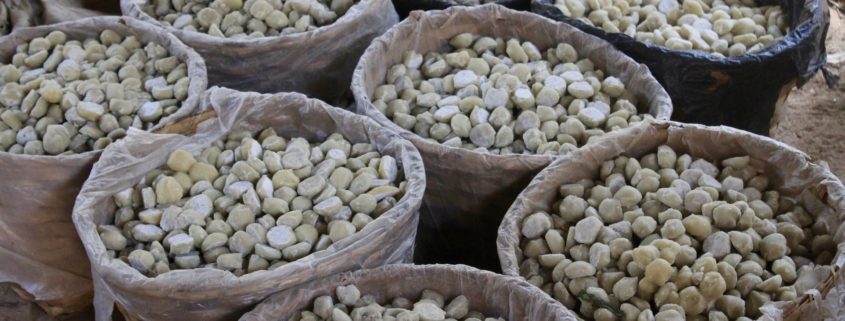The Jaggery Trader
Ko Hmat Kyi, 46, is a small business owner in Tetma village, located in the Dry Zone of Myanmar. He supports his family through his palm tree and vegetable plantations. To make enough jaggery for trading, he has to climb 30 tall palm trees twice a day using a basic ladder made from two tall bamboos.
The sugary sap is collected using a number of small earthen jars. After that, the liquid is mixed into a large pot, boiled and stirred until it thickens to a paste. The worker would then knead the product into small chunks which hardens after being cooled. Inside the rudimentary kitchen where the jaggery is prepared, the air is hot, dense and sweet.
In the past, Ko Hmat Kyi had no choice but to send his eldest son to fetch water in the day as his time was fully occupied with his jaggery business. To get clean water, his son often had to travel to a neighbouring village and queue for two to three hours to wait for his turn at the tube well or hand pump. This also meant that on days when he went to collect water, he would have to miss school.
Things got better for Ko Hmat Kyi’s family in 2016. In partnership with Myanmar Engineering Society (MES), Lien AID completed a pilot project in Myanmar, enabling villagers in Tetma village to gain better access to clean water via a solar-powered, gravity-fed water distribution system.
Ko Hmat Kyi told us that better access to clean water has not only made life more convenient for his family, but it also led to an improvement in the school grades of his eldest son. He was able to pass his university entrance exams and now studies at a university in the city of Yangon.
Read more about our pilot project in Myanmar here.







